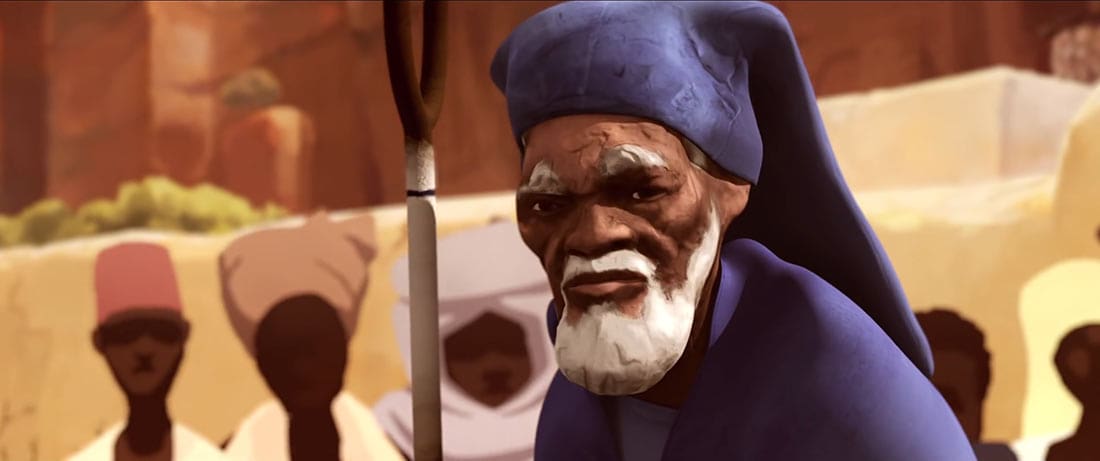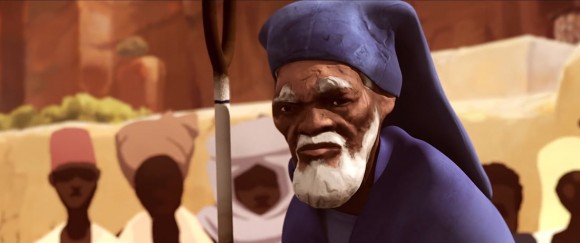

Review: Simon Rouby’s ‘Adama’ Pushes CG Animation In A Stunning New Direction
The splendidly original and enthralling French animated feature Adama opens in France today, but Americans also have a chance to catch it this week — if you live in Chicago.
The film’s American premiere will take place this weekend at both the Chicago International Film Festival and Chicago International Children’s Film Festival. Here’s the screening schedule for the Chicago International Film Festival:
10/23: 5:45pm Simon Rouby (director) and Phillippe Aigle (producer) scheduled to attend
10/25: 11:30am Simon Rouby (director) and Phillippe Aigle (producer) scheduled to attend
10/26: 12:45pm
And here’s the screening schedule for the Chicago International Children’s Film Festival:
10/24: 1pm (Alliance Française)
10/29: 11:45am (Instituto Cervantes)
10/29: 11:45am (Logan Center for the Arts—Performance Hall)
Adama is a period coming-of-age odyssey loosely inspired by the true-life stories of West Africans who were conscripted by France to fight in Europe during World War I. The titular star is a 12-year-old West African boy who leaves the safety of his cloistered cliff-walled village to search for his older brother. The journey ultimately leads him to the front line of World War I’s infernal Battle of Verdun. The single-minded mission of Adama to locate his sibling could have made this a straightforward adventure film, but director Simon Rouby conjures a magical realist atmosphere by weaving in mystical elements and leaving some of the major plot points open to the viewer’s interpretation. If you’re expecting your typical American animated feature that wraps up neatly with a bow, be forewarned that Adama doesn’t play that game.
Rouby, who makes his remarkable feature directing debut with Adama, aimed to create a film that works on multiple levels — an easy-to-follow and absorbing adventure story accessible to children, and an allegorical subtext that would “trigger reflections in the minds of adult spectators,” as he put it to Variety. He achieved both: Adama is that rare kid’s film that can’t easily be labeled a kid’s film, offering as much nuance and depth as many films aimed at adults.
The unique story is complemented by a visual look that is unlike anything you’ve ever seen in a CG animated feature. The animation is controlled — characters move strictly within the range of human motion — but their appearance, which is based on laser-scanned sculptures, pushes them out of the stodgier realm of reality and invites the viewer to explore the cragged nooks and valleys of the character’s sculptured faces.
Rouby mixes and matches techniques more like mad scientist than animation director. The CG characters live in front of painted backgrounds, which progress from impressionistic scenes of African vistas to increasingly realistic images of industrialized war-torn Europe. Some of the sandstorm effects were animated by blowing sand around in a water-filled aquarium while bomb effects were created by exploding small bits of gravel. Some of the most unique scenes were animated with iron-based ferrofluids and magnets, a process that is easier explained visually in this making-of video. On paper, this discordant collection of techniques sounds like it could never work, but onscreen the effect is seamless and pure magic.
The budget for Adama has been reported to be between $3-4 million, a remarkably low figure that was made possible in large part by animating the film on Réunion, an island in the middle of the Indian Ocean. At Annecy, the buzz amongst French producers was that no one could believe Adama was achieved at such a modest price. Even at multiples of this budget, the film would still be a bargain.
Don’t expect other producers to follow in Adama’s footsteps though because Rouby’s idiosyncratic achievement doesn’t have a replicable formula. Like the titular character’s laser-focused search for his brother, Adama is a film driven by a director’s laser-focused personal vision. It’s the kind of inspired, no-compromise filmmaking that happens all too rarely in animation, and Adama needs to be seen by anyone who’s wondering where the art of CG animated features can go next.
To learn more about the film, visit its Facebook page.

.png)